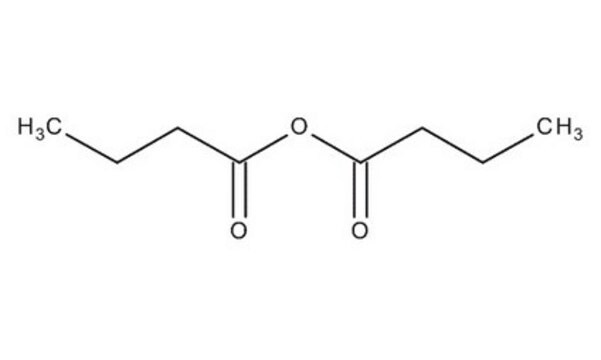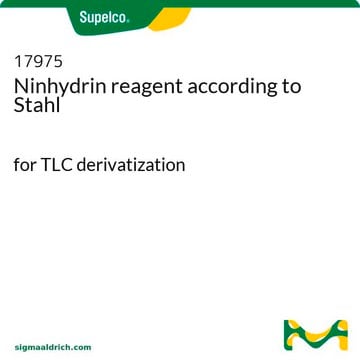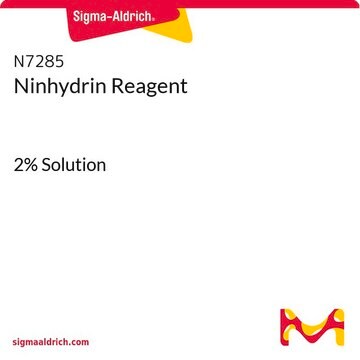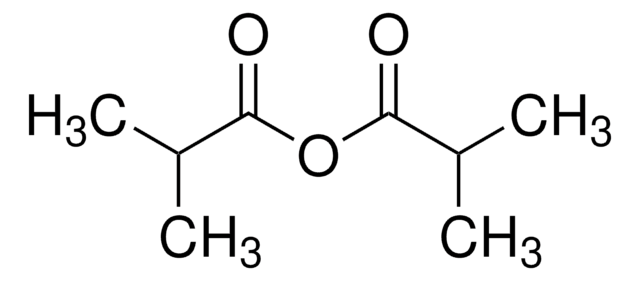19270
Butyric anhydride
purum, ≥97.0% (NT)
Synonym(s):
Butanoic anhydride
About This Item
Recommended Products
vapor density
5.45 (vs air)
Quality Level
vapor pressure
10 mmHg ( 79.5 °C)
grade
purum
Assay
≥97.0% (NT)
autoignition temp.
535 °F
expl. lim.
1.1 %, 104 °F
7.6 %, 144 °F
refractive index
n20/D 1.413 (lit.)
n20/D 1.413
bp
198-199 °C (lit.)
mp
−75-−66 °C (lit.)
solubility
alcohol: soluble (with decomposition)(lit.)
diethyl ether: soluble(lit.)
water: soluble (with decomposition)(lit.)
density
0.967 g/mL at 25 °C (lit.)
SMILES string
CCCC(=O)OC(=O)CCC
InChI
1S/C8H14O3/c1-3-5-7(9)11-8(10)6-4-2/h3-6H2,1-2H3
InChI key
YHASWHZGWUONAO-UHFFFAOYSA-N
Looking for similar products? Visit Product Comparison Guide
Application
- dibutyrylchitin, a lipophilic chitin diester
- N-(2-acetamido-2-deoxy-β-D-glucopyranosyl)-n-butyramide
- butyric-ester derivatives of hyaluronic acid
Signal Word
Danger
Hazard Statements
Precautionary Statements
Hazard Classifications
Acute Tox. 4 Oral - Eye Dam. 1 - Skin Corr. 1B
Supplementary Hazards
Storage Class Code
8A - Combustible corrosive hazardous materials
WGK
WGK 1
Flash Point(F)
188.6 °F - closed cup
Flash Point(C)
87 °C - closed cup
Personal Protective Equipment
Choose from one of the most recent versions:
Already Own This Product?
Find documentation for the products that you have recently purchased in the Document Library.
Customers Also Viewed
Our team of scientists has experience in all areas of research including Life Science, Material Science, Chemical Synthesis, Chromatography, Analytical and many others.
Contact Technical Service












